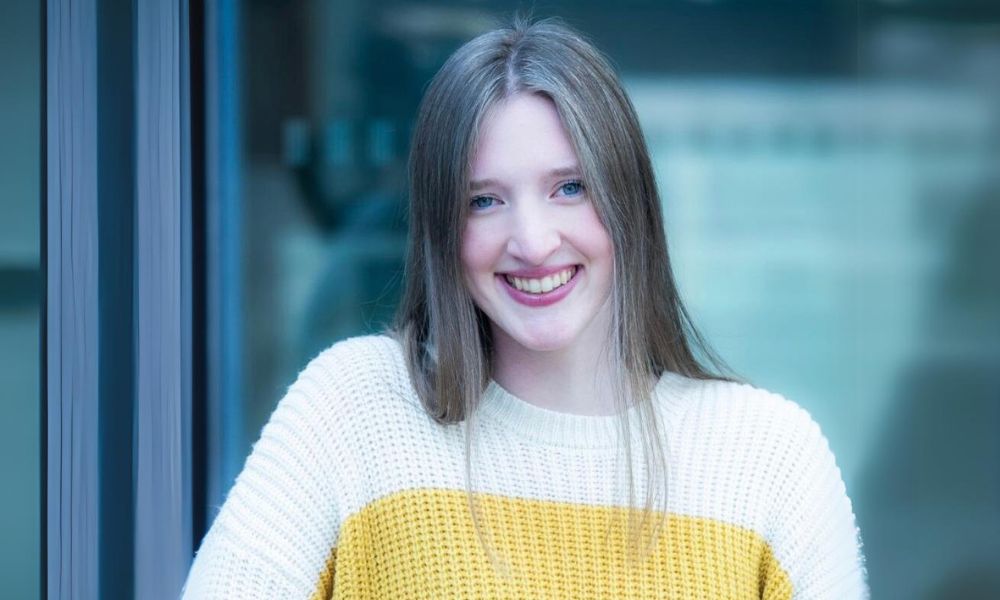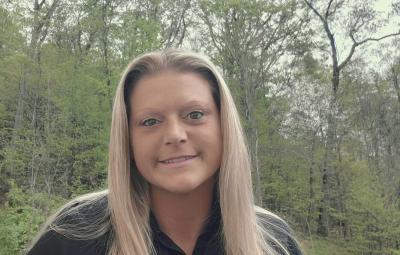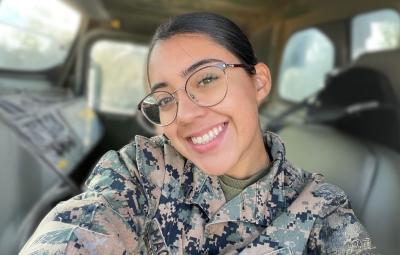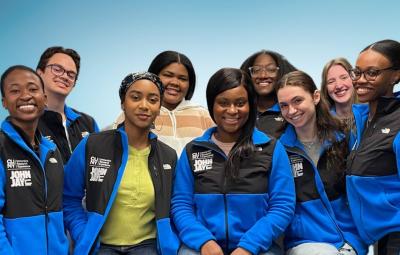
Major: B.S. in Forensic Science with a concentration in Toxicology
Minor: Biology
Mentor: Elise Champeil, Ph.D., Edgardo Sanabria-Valentín, Ph.D.
Programs: PRISM, Honors Program, CUNY Immersive Research Experience (CIRE)
Internship: Food and Drug Administration, National Center for Toxicological Research
Hometown: Little Rock, AR; Manhattan, NY
Career Aspiration: Forensic Toxicologist
What was life like before John Jay?
I was fortunate to grow up in a close-knit, supportive family. I have five older siblings, 11 nieces and nephews, and a bunch of cousins. We’re very liberal and lived in a very conservative area of Arkansas—so our views on life didn’t really align with the people that surrounded us. Growing up in a conservative town was challenging, especially after I came out as gay in high school. I was heavily bullied by my peers at school. I was just miserable, but the pandemic and my family saved me.
My parents were so supportive. When I began feeling depressed, my dad, who is a doctor, used his scientific knowledge to explain what was occurring in my brain and why the depression was happening. Science helped me understand life. Seeing what I was experiencing, my mom knew it was time for me to leave the South. She suggested I look at New York City because it was a more diverse, open, and accepting environment. I remember coming to the city for the first time and seeing a gay couple holding hands. It felt so freeing. I knew New York would be my new home.
Why John Jay?
John Jay’s diversity, location in New York, and focus on criminal justice drew me to the College. I’ve always wanted to work in the criminal justice system in some way. Initially, I applied as a forensic psychology major because I planned to focus on prison reform. But after taking a chemistry course, I changed my major to forensic science where I could help improve the justice system using science.
How has your mentor put you on the path to success?
Dr. Champeil has genuinely changed my life. After taking her organic chemistry class, she approached me, asked if I was interested in research. After I said “yes,” she invited me to work in her research lab. Since then, she has allowed me to shadow her in the lab, taught me to become an independent scientist, motivated me to apply for different experiential learning opportunities, and believed in my scientific abilities. When I’m doubting myself and feeling like I’m not good enough, Dr. Champeil boosts my confidence.
Because of her mentorship, I’ve successfully presented my research at conferences and even won a best poster award because I could communicate the research in a way that all audiences can understand. She so strongly believes in her students’ potential and wants them to succeed. She always tells me, “You’re going to get your Ph.D.” As her student and mentee, I feel like I can accomplish anything.
What are you researching with Dr. Champeil?
We’re currently working on this drug called DELS-15, which is a derivative of an already existing anti-cancer drug called Mitomycin C that treats breast, stomach, and pancreatic cancers. The goal of Mitomycin C is to stop the cancer cells from replicating. DELS-15 is just now being synthesized. Most cancer drugs, like Mitomycin C, typically target the TP53 pathway, a gene that is known as the guardian of your genome which signals cell death. TP53 says to a cell, “Hey, something is wrong with your DNA, you need to die.” But there are some cancers that have a mutated TP53 gene which makes the cancer extremely hard to treat. What makes DELS-15 so exciting is that it combines several different anti-cancer properties and is theorized to bypass mutated TP53 pathway and be more likely to kill the tumor cell.
How has PRISM enhanced your education?
PRISM is phenomenal because of Dr. Ed (Edgardo Sanabria-Valentín, Ph.D.). He shares so many learning, research, and internship opportunities with students. He provides access to information sessions, conferences, site visits, and workshops, allowing me to explore so many different opportunities at no financial cost. The PRISM community is also wonderful. I can mentor other students, answer their questions, help guide them on their journey, and talk science with them. PRISM’s support system is incredible, and I’m proud to be part of this science community.
What’s it been like being part of the CIRE inaugural cohort?
CIRE provides such a unique opportunity for CUNY students interested in science. It connects us to incredible resources and opens up the world of research. As a CIRE scholar, I connect with scientists from various institutions and disciplines and attend events with other scholars. That level of learning and exposure is so valuable. I love the extensive research we’re able to do through CIRE and I’m excited about the certifications I obtained through the program, such as “Research Conduct of CUNY” and “Human Research, Basic Conduct”—which looks great on my resume and are skills I’ll be able to use throughout my career.
Where do you see yourself in 10 years?
I will have my Ph.D. in toxicology and be working in a government crime lab, like the FBI. I would love to work on cases and be an expert witness, testifying in court and using science to explain the evidence. I also want to teach organic chemistry at some point. I love to break science down for people in simple, engaging ways. Science is fun, and I want to bring more people into this world.



